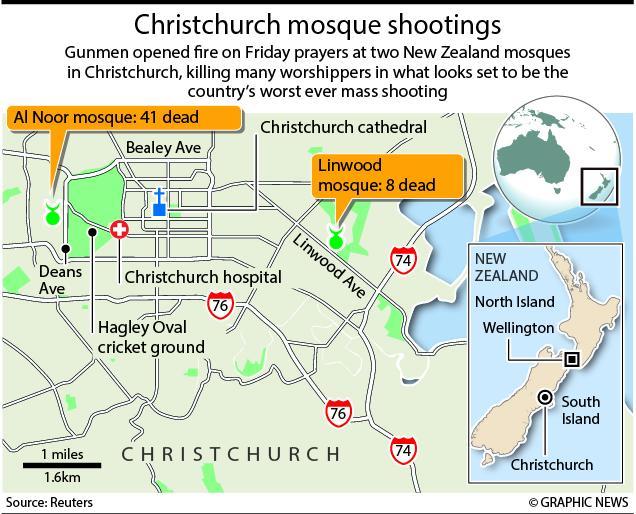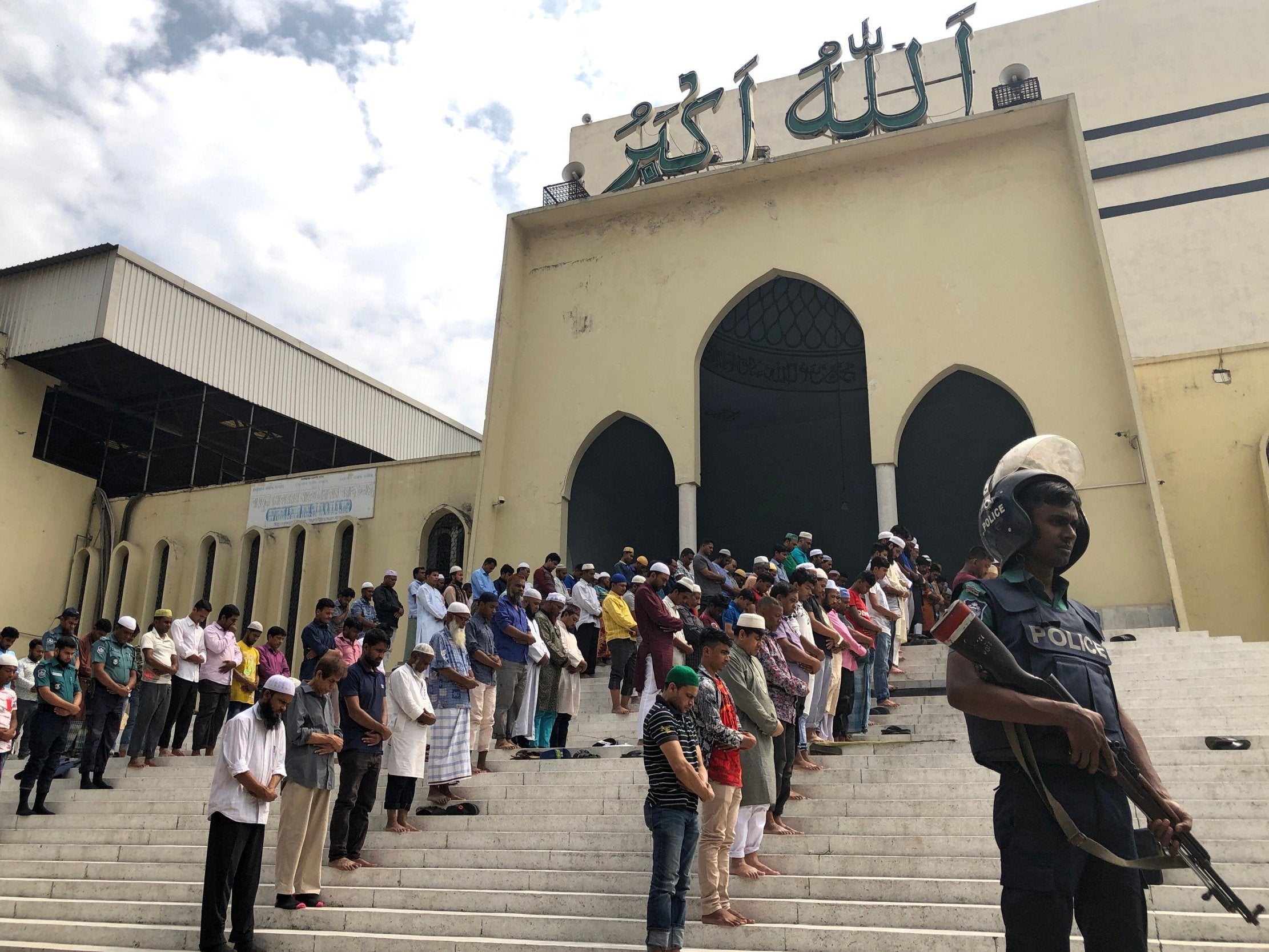‘Not only the perpetrators, but also politicians and media’: World leaders blame global rise of Islamophobia for New Zealand terror attack
Many new immigrants and refugees thought to be among victims
Your support helps us to tell the story
From reproductive rights to climate change to Big Tech, The Independent is on the ground when the story is developing. Whether it's investigating the financials of Elon Musk's pro-Trump PAC or producing our latest documentary, 'The A Word', which shines a light on the American women fighting for reproductive rights, we know how important it is to parse out the facts from the messaging.
At such a critical moment in US history, we need reporters on the ground. Your donation allows us to keep sending journalists to speak to both sides of the story.
The Independent is trusted by Americans across the entire political spectrum. And unlike many other quality news outlets, we choose not to lock Americans out of our reporting and analysis with paywalls. We believe quality journalism should be available to everyone, paid for by those who can afford it.
Your support makes all the difference.A terror attack targeting two mosques in New Zealand has sent shockwaves across the Muslim world, with many national leaders blaming a global rise in Islamophobia for the killings.
As the casualties were counted on Friday, it quickly became clear that the impact of the brutal slayings would have a global reach. Citizens of Turkey, Saudi Arabia, Indonesia and Jordan are thought to be among the injured and missing, which left at least 49 people dead, and dozens injured.
New Zealand police said three men and one woman were in custody and one man had been charged with murder.
Prime Minister Jacinda Ardern said some of the victims may have been new immigrants and refugees.
"They are us. The person who has perpetuated this violence against us is not. They have no place in New Zealand," she said.
Religious and political leaders from across the Islamic world have strongly condemned the terror, and called for action to combat the thinking behind it.
Turkey’s President Recep Tayyip Erdogan called the shootings the "latest example of rising racism and Islamophobia."
Turkish Foreign Minister Mevlut Cavusoglu wrote on Twitter: "Not only the perpetrators, but also politicians & media that fuel the already escalated Islamophobia and hate in the West, are equally responsible for this heinous attack."
Imran Khan, Pakistan’s prime minister, echoed that sentiment, blaming the attack on “the current Islamophobia post-9/11 [where] 1.3 billion Muslims have collectively been blamed for any act of terror."
Iran's Foreign Minister Mohammad Javad Zarif accused Western countries of "defending demonisation of Muslims" under the pretext of "freedom of expression".
"Impunity in Western 'democracies' to promote bigotry leads to this," he wrote on Twitter. "Western hypocrisy of defending demonisation of Muslims as 'freedom of expression' MUST end."
The country's foreign ministry spokesman, Bahram Qassemi, called the attacks "inhuman and brutal", Fars news agency reported, and called on governments "not to allow racist and anti-Islam movements to endanger the safety and security of citizens of their countries".

A city of about 400,000 people, Christchurch has a small Islamic community, including overseas students.
Indonesia's ambassador to New Zealand, Tantowi Yahya, said six Indonesians had been inside one of the mosques when the attack occurred, with three managing to escape and three unaccounted for.
There are 331 Indonesians in Christchurch, including 134 students, the foreign ministry said.
"Indonesia strongly condemns this shooting act, especially at a place of worship while a Friday prayer was ongoing," Foreign Minister Retno Marsudi said in a statement.
Afghanistan's ambassador to Australia, New Zealand and Fiji, Wahidullah Waissi, said on Twitter that three Afghans had been wounded.
Two Malaysians were also wounded in the attack, its foreign ministry said.

Bangladeshi Minister of State for Foreign Affairs Shahriar Alam said it was "extremely lucky" the country's cricket team, in Christchurch for a match against New Zealand, did not suffer casualties. The players arrived for Friday prayers as the shooting started.
"I can't even imagine what would have happened if they were there five minutes earlier," he said on social media.
Hundreds of angry protesters in Dhaka, Bangladesh's capital, chanted Allahu akbar (God is Great) after Friday prayers.
"We will not let the blood of Muslims go in vain," said one protester.
In a statement, Al-Azhar University, Egypt's 1,000-year-old seat of Sunni Islamic learning, said the attacks had "violated the sanctity of the houses of God".
"We warn the attack is a dangerous indicator of the dire consequences of escalating hate speech, xenophobia, and the spread of Islamophobia."
More had to be done to promote the co-existence of different religions and cultures, the university said.
Additional reporting by Reuters
